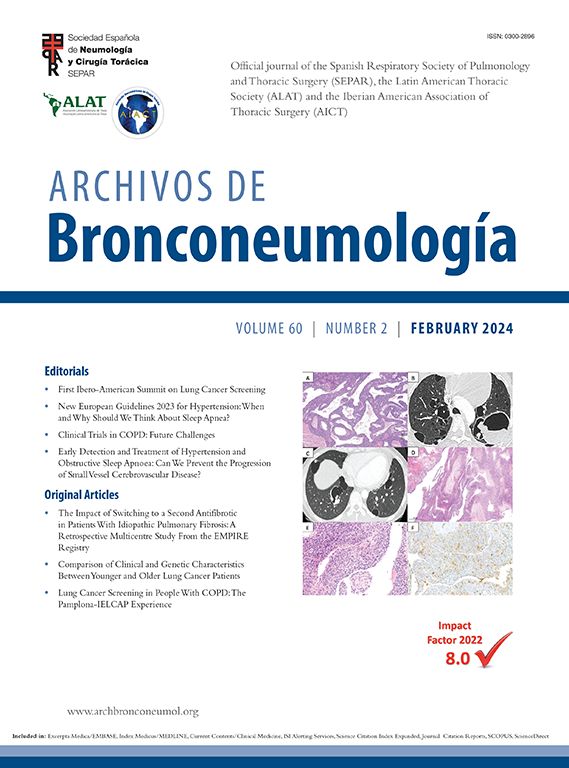Mucus Plugs as Precursors to Exacerbation and Lung Function Decline in COPD Patients
IF 8.7
3区 医学
Q1 RESPIRATORY SYSTEM
引用次数: 0
Abstract
Background
Mucus plugs identified through chest computed tomography (CT) scans have emerged as potential prognostic factors in chronic obstructive pulmonary disease (COPD). This 5-year longitudinal study investigated their impact on exacerbations and FEV1 decline.
Methods
COPD patients with baseline chest CT and spirometric assessments were categorized based on mucus plug presence. Propensity-score matching yielded balanced groups. Exacerbation rates, time to exacerbation events, hazard ratio (HR) for exacerbations, and annual rates of FEV1 decline were evaluated. Sensitivity analysis was performed with stratification according to mucus plug scores of 0, 1–2, and ≥3.
Results
Among 623 eligible patients, the mucus plug group was 44.3%. Through 1:1 propensity-score matching, each group was comprised of 187 individuals with balanced covariates. The mucus plug group showed higher rates of moderate-to-severe (0.51/year vs. 0.58/year, P = 0.035), severe exacerbations (0.21/year vs. 0.24/year, P = 0.032), and non-eosinophilic exacerbations (0.45/year vs. 0.52/year, P = 0.008). Mucus plugs were associated with increased hazard of moderate-to-severe (adjusted HR = 1.502 [95% CI 1.116–2.020]), severe (adjusted HR = 2.106 [95% CI, 1.429–3.103]), and non-eosinophilic exacerbations (adjusted HR = 1.551 [95% CI, 1.132–2.125]). Annual FEV1 decline was accelerated in the mucus plug group (β-coefficient = −62 [95% CI, −120 to −5], P = 0.035). Sensitivity analysis showed higher risk of exacerbations and accelerated FEV1 decline in mucus plug score ≥3 compared to score 0.
Conclusions
Mucus plugs are associated with increased risks of exacerbations, particularly non-eosinophilic, and accelerated FEV1 declines over 5 years. Our study identified the potential prognostic value of mucus plugs on future exacerbation risks and lung function decline trajectories.

粘液塞是慢性阻塞性肺病患者病情加重和肺功能下降的前兆
本文章由计算机程序翻译,如有差异,请以英文原文为准。
求助全文
约1分钟内获得全文
求助全文
来源期刊

Archivos De Bronconeumologia
Medicine-Pulmonary and Respiratory Medicine
CiteScore
3.50
自引率
17.50%
发文量
330
审稿时长
14 days
期刊介绍:
Archivos de Bronconeumologia is a scientific journal that specializes in publishing prospective original research articles focusing on various aspects of respiratory diseases, including epidemiology, pathophysiology, clinical practice, surgery, and basic investigation. Additionally, the journal features other types of articles such as reviews, editorials, special articles of interest to the society and editorial board, scientific letters, letters to the editor, and clinical images. Published monthly, the journal comprises 12 regular issues along with occasional supplements containing articles from different sections.
All manuscripts submitted to the journal undergo rigorous evaluation by the editors and are subjected to expert peer review. The editorial team, led by the Editor and/or an Associate Editor, manages the peer-review process. Archivos de Bronconeumologia is published monthly in English, facilitating broad dissemination of the latest research findings in the field.
 求助内容:
求助内容: 应助结果提醒方式:
应助结果提醒方式:


